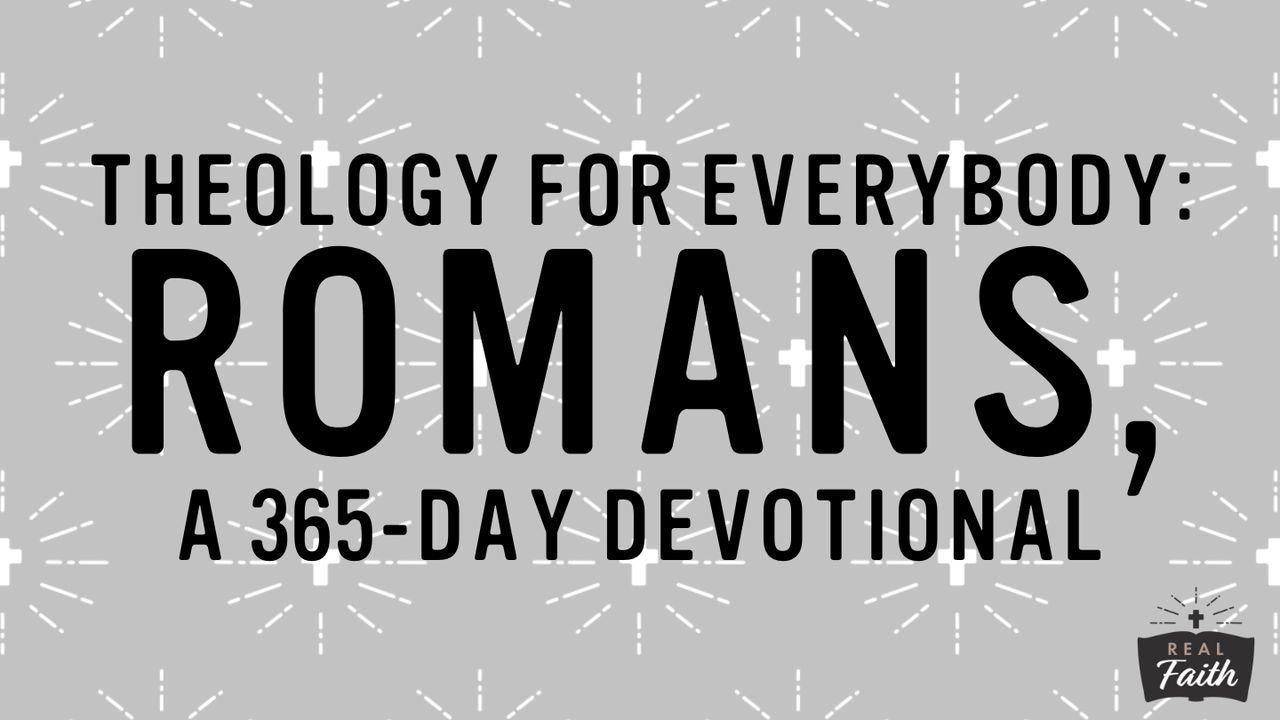Theology for Everybody: RomansSample

Paul uses an analogy of olive branches, olive trees, and olive presses. In ancient times, olive trees were especially important for the sustenance of your business, life, and family. People used olive oil for cooking, medicinal purposes, and to light their lamps. It was a multifunctional agrarian staple. If you had a good olive tree, then you were really blessed because a good olive tree could last for 300–400 years and bless generations of your family.
You can read a lot in the Bible about olive trees, olive oil, and olive presses. The Garden of Gethsemane, where Jesus was on the night He was betrayed, was an olive grove. The Lord was surrounded by olive trees. Olives are pressed for their oil in the same way that Jesus was pressed until blood literally flowed out of His body as a sacrifice for our sins.
There are three kinds of olive trees and olive branches. First, there are wild trees and branches, which are worthless. They don’t bear fruit, and they’re not very profitable. That is what Paul calls unbelieving Gentiles. That is where we all start.
The second category Paul speaks of is the cultivated olive branches and trees. To cultivate would mean you needed a gardener who paid careful, devoted attention. A cultivated olive tree could be fruitful for 300–400 years, but it would require cultivation and pruning. A lot of Christians like being grafted, but they don’t like being cultivated. They don’t want to be pruned. You might have painful things going on in your life. You need to know that God is not punishing you—He’s pruning you. God doesn’t hate you; He loves you and knows parts of you are still a bit wild, and He needs to prune those. This is what the Bible means by repentance: “I changed my mind and behavior by the power of the Holy Spirit.” Some things need to be cut out. Some relationships, some beliefs, some attitudes, some responses, some convictions, some expenditures...they all need to be cut out so you could be more fruitful. So they would have cultivated all the branches and trees.
The third category Paul refers to is the grafted olive branches. God started with the firstfruits of Abraham and the Jewish people in the Old Testament, and then the Gentiles—the wild branches—were grafted in. The Jewish people were first, and the Gentiles were second. We worship a Jewish Jesus, and we are grafted in. Our faith is like a seed planted with God’s promise to Abraham. Rooted in the patriarchs, it sprouted into the nation of Israel. It brought forth the fruit of Scripture in the Lord Jesus Christ. God can work anywhere with anyone, and He can graft anyone anywhere into the faith and family of Abraham.
We’ve been grafted into the life of Jesus Christ. The key to being fruitful is abiding in that relationship. Jesus says, “If you abide in me, and my words abide in you, ask whatever you wish, and it will be done for you” (John 15:7).
Today’s Reflection
What kind of olive branch are you today? What kind of olive branch do you want to be?
Scripture
About this Plan

After Pastor Mark got saved in his college dorm room reading the book of Romans, this 365-day devotional is the culmination of more than 30 years of studying this incredible book. Chapter-by-chapter, verse-by-verse, this book digs into topics covered in the great book of Romans, such as justification, grace, predestination, legalism, deconstruction, and more.
More









